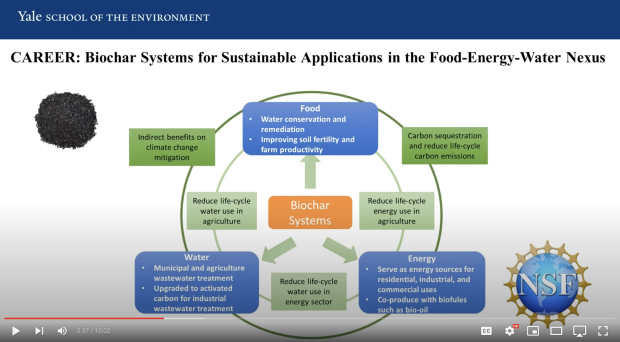This is a five-year research project funded by the U.S. National Science Foundation. This project targets bridging knowledge gaps for biochar production and effective applications in enhancing Food-Energy-Water (FEW) Nexus sustainability by integrating LCA, techno-economic analysis, Geographic Information System, machine learning, and dynamic modeling.
This project targets bridging knowledge gaps for biochar production and effective applications in enhancing FEW sustainability by integrating LCA, techno-economic analysis (TEA), Geographic Information System (GIS), machine learning, and dynamic modeling. Understanding the impacts of using various biomass substrates for different biochar applications on the environment, economics, and communities will lay a foundation for the further design and implementation of large-scale biochar systems under different socio-economic, climate change, and resource limiting conditions. Integration of advanced modeling tools including LCA, GIS, and machine learning that are commonly used in different disciplines is an important feature of the approach. Through the integration of advanced modeling methods from engineering, environmental science, natural science, and data science, this project seeks to demonstrate how transdisciplinary research can create improved societal outcomes.
